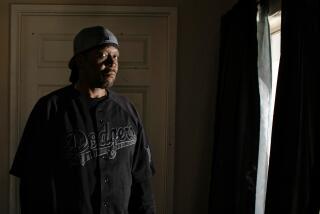SOUTHERN CALIFORNIA CAREERS / THE PATCHWORK OFFICE : Hands-On Manager Puts Diversity to Work
- Share via
Ten years ago, Wesley Ru bought Western Badge & Trophy Co., a small manufacturing firm in Downtown Los Angeles. Within a week, he could see that many of his employees had trouble getting along with co-workers of other races or ethnicities.
But today, even though Ru’s staff is 12 times bigger and just as diverse, he feels it is much more harmonious. The company’s experience stands as one example of how a manager dealt successfully with racial-, ethnic- and gender-based conflict at work.
When Ru took over in 1985, Mexicans and Central Americans, who made up the majority of his 17 employees, sometimes insulted one another about their countries of origin. Several white employees told Ru, a Taiwanese immigrant, to go back to his office and let them do things the way they had always done them.
“You put all kinds of people from all groups together, expect them to have breakfast and lunch and work together and it’s a feat,” Ru said. “Couple that with different cultural habits and philosophies and it gets even more complicated.”
Instead of ignoring the complexities, Ru used a combination of encounter-group psychology, leadership by example and genuine interest in his employees’ lives to turn the tensions around. Today, even with a staff that’s grown to 200, Ru says complaints and conflicts among employees are rare.
“I’m no Harvard MBA,” said Ru, 40, who came to the United States at age 11 and learned Spanish while living in East Los Angeles. “I grew up on the streets. I spend a lot of time talking with my people as friends. I’m in the shop with them all day long. We’re on a first-name basis.”
The way Ru sees it, all people--regardless of race or cultural background--are leery of strangers, and breaking down barriers between employees can help forge closer working relationships.
For instance, when two women from different Central American countries kept sniping at each other, Ru took them in a room, sat them down and asked them to define why they disliked each other.
Neither could come up with a solid reason, and realized their hostility had been unfounded, he said. The conversation created an impasse and eventually the two women halted their war of words, he said.
Not all conflicts can be resolved through discussion, Ru found. When Ru’s sister became production manager, some of the men had difficulty taking direction from an Asian woman, he said.
“She used to cry because they would not listen to her,” Ru recalled.
To demonstrate that such insubordination would not be tolerated, the firm fired those men, Ru said.
“We have to show we care about the employees and do things to improve their work conditions, but at the same time, we won’t tolerate people that disrupt the group as a whole,” Ru said.
Another part of Ru’s philosophy is to make employees feel vested in the company. He tells them what he believes: that the company cannot succeed without them and that he cares about their well-being. And early on, that approach brought results.
It happened after he had owned the company only a week. He was weary of trying to prod an uncooperative front-office staff. And then one evening he saw a small group of employees approaching his office.
“I thought to myself, ‘Oh, God, what is it now? Are we going to have a riot?’ ” Ru recalled.
But instead, the group of Latino and African American employees trooped into his office and told him that they believed he was going to make the company succeed and they pledged themselves to do all they could to help him.
Ru describes himself as a hands-on manager. Early on, he had to stand firm against some employees’ desire--clearly stated, to Ru’s dismay--that he withdraw to his office. He said he believes that a closer working group is formed when employees see him day in and day out, walking around the factory floor in close touch with them as they make trophies, promotional buttons, lapel pins and other products.
And Ru is involved with his workers in other ways, too. He goes to their weddings and baby baptisms. He arranges an occasional place to stay for a worker who had a fight with a spouse. He chats with them about the cultural customs and holidays important to them.
“It’s about time managers try to understand their people,” Ru said. “I go down and have lunch with them, sit down, find out about their lives. I eat the food they make for me, and it’s a thrill for me and for them.”
More to Read
Inside the business of entertainment
The Wide Shot brings you news, analysis and insights on everything from streaming wars to production — and what it all means for the future.
You may occasionally receive promotional content from the Los Angeles Times.










